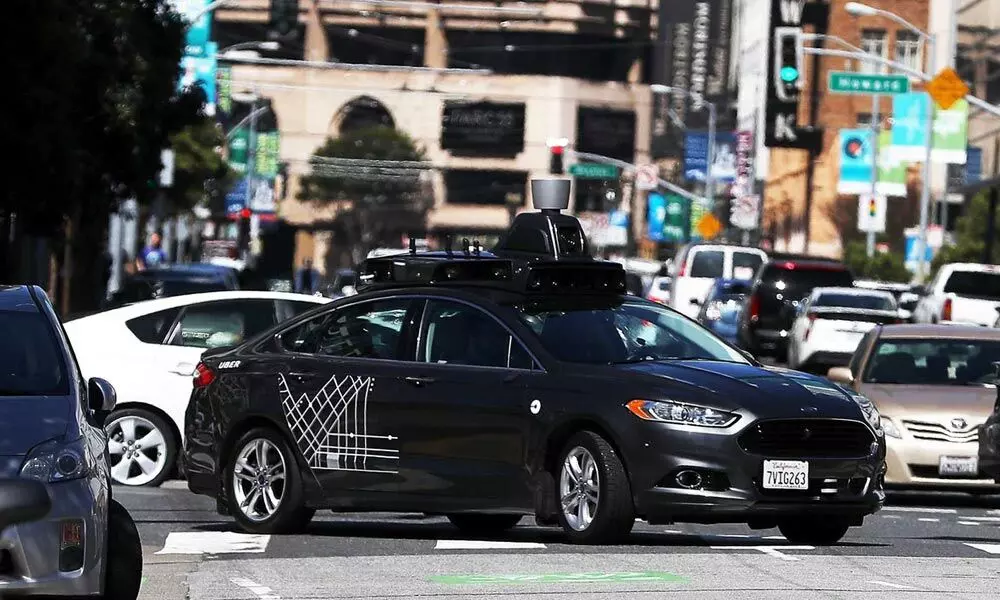Why does the world need so many cars, anyway?
Stop worrying about automakers and all their production cuts; This rebalancing is healthy for the sector, and long overdue
image for illustrative purpose

Sure, there may be frustrated potential buyers who can't get their hands on a new car immediately, or companies not making as much as they could have. But the pullback should drive a deeper rethink of business models, especially as automakers now have the safety of profit buffers and hefty operating margins, thanks to the demand-supply imbalance
Global automakers are slashing production forecasts, which will cost the world hundreds of thousands of cars in the coming months. Yet any worries about this outcome belie the underlying problems of an industry marred by slowing sales and brimming output before the pandemic. In reality, the latest cuts will only help a much-needed (even if painful) rebalancing of the sector.
The cutbacks have come hard and fast: The world's largest automaker, Toyota Motor Corp., this month revised down its production forecast for the year. Other Japanese manufacturers such as Nissan Motor Co. and Honda Motor Co. have done the same, bringing the combined figure to over 1 million cars. In the UK, output fell sharply in July, marking the worst performance in that month since 1956, while production could be lowered by 1.5 million units for the whole year in North America. Europe's new car sales in August dropped 18 per cent from a year earlier, following a 23 per cent fall the previous month.
The prospect of fewer cars rolling off production lines may be troubling. However, this is what was supposed to happen, even before the shock of the pandemic. "Peak car" was imminent, if not already realized. In that context, having fewer vehicles isn't necessarily a bad thing - and, perhaps, should be considered the new normal.
Take a look at what was happening before Covid-19. The market was inundated with vehicles – buyers were being lured into showrooms with incentives, price cuts and techie features. Automakers were facing tough emissions regulations, the threat of technology and trade frictions that were raising the cost of cars.
In early 2020, Volkmar Denner, CEO of Robert Bosch GmbH, one of the world's largest automotive parts suppliers said: "It could well be that we have passed the peak of automotive production," as his company announced job cuts and a drop in profit. Global car output was expected to fall for a third consecutive year as demand cratered and stayed flat in 2020.
All the while, carmakers' profits were barely growing, margins were thinning and controlling costs was the biggest challenge. Yet production continued to chug along because companies saw no other way out of the morass. So intense was the fear of what would come from the waning global auto industry that even the International Monetary Fund sounded the alarm. In its World Economic Outlook report in October 2019, the organization noted that the sector accounts for 5.7 per cent of global economic output and about 8 per cent of global goods exports.
The massive production cuts may now paint a stark picture of what could lie ahead for the global economy. But that's only if companies keep doing what they've always done. The coronavirus outbreak - and accompanying supply chain shortages and shutdowns - has now forced automakers into what they had previously been unwilling to do. That's a good thing. With all the latest clean air goals, who really needs so many cars, anyway? Especially as they keep getting more expensive.
Sure, there may be frustrated potential buyers who can't get their hands on a new car immediately, or companies not making as much as they could have. But the pullback should drive a deeper rethink of business models, especially as automakers now have the safety of profit buffers and hefty operating margins, thanks to the demand-supply imbalance. Companies can even go a step beyond replacing gas vehicles with electric ones, and consider making fewer, better, greener cars. Any impulse to ignore this opportunity and go back to business-as-usual, churning out heaps of vehicles carmakers think consumers want, would be misguided – and ultimately far more painful. (Bloomberg)

